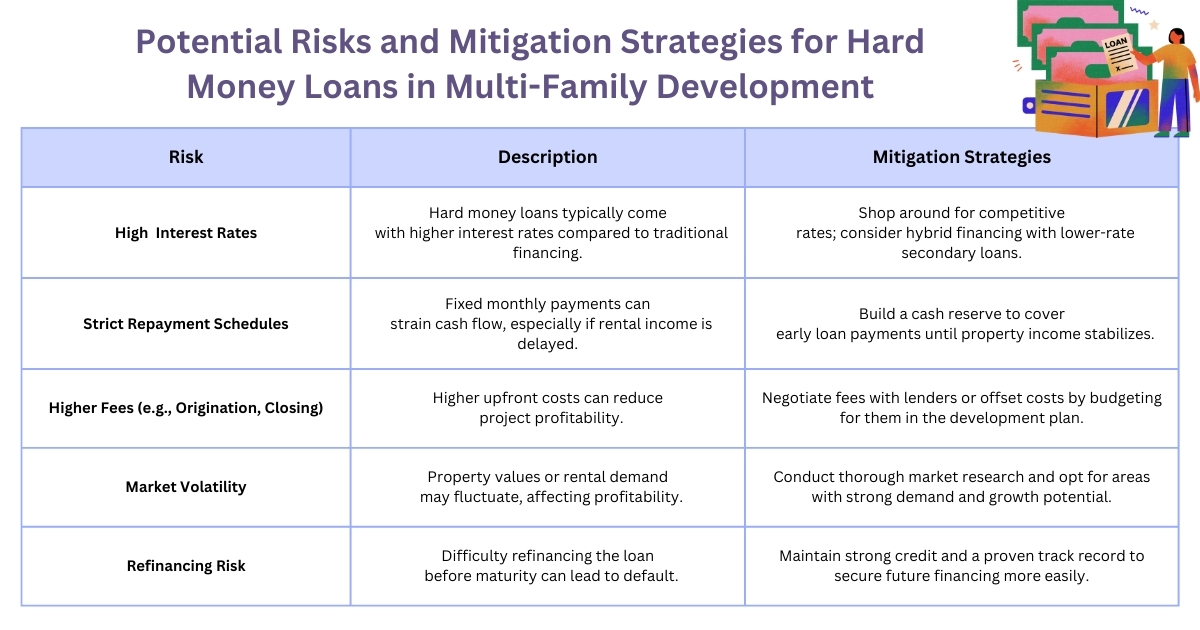Table of Contents
ToggleIntroduction
California’s real estate crisis has unexpectedly increased demand for multi-family housing in metropolitan areas like Los Angeles, San Francisco, and Silicon Valley. As the demand for rentals has increased due to a steep rise of an average of 20% in home prices, the growing population has caused quite a stir in the demand for multi-family housing options. Hard money loans have emerged as a savior for developers looking to tap into multi-family housing opportunities. They offer quick and easy asset-based financing and flexible terms compared to conventional financing. This blog delves into how hard money lending supports developers to take advantage of the soaring multi-family housing market without any delays and why it is crucial to the state’s competitive housing market.The Growing Demand for Multi-Family Housing in California: Comprehensive Insight
The shortage of proper housing has become a major issue for millions in the Californian real estate landscape. Let us dive into the key factors that impact the growing demand for multi-family housing in California: 1. Population Hike California’s population has seen a significant rise in its numbers due to its diverse economy and favorable job opportunities. This has resulted in high migration rates, causing a sudden shift in demand for rental properties. 2. Affordability Issues Single-family units have become expensive, which has created undue pressure on the availability of multi-family units. Thus, developers and real estate builders are demand-driven and motivated to build affordable multi-family units. 3. Urbanization California is experiencing a major surge in its urbanization scene as many residents seek lucrative employment opportunities, cultural experiences, and better access to modern healthcare and infrastructure. This rapid influx of people has boosted the demand for housing, especially multi-family units, as it faces a scarcity of land for new construction and building projects.What are the Advantages of Hard Money Loans for Multi-Family Housing Development in California Rising Demand in the Real Estate Market?
Hard money loans have become a great financing tool, especially for multi-family housing investors who struggle with strict timelines, high costs, and regulatory disputes. Let us discuss the key advantages that play a major role in securing multi-family housing in this highly expensive and competitive real estate landscape: Bridging Financing Gaps Hard money lenders in California often face various regulatory pressures and delays due to extensive permitting processes, and environmental and zoning issues, especially from the California Environmental Quality Act (CEQA). These loans perform as ‘bridge loans’ by eliminating any funding gaps to ensure smooth working without any unwanted delays and longer-term financing solutions to the developers. Asset-Based Lending The asset-based nature of hard money loans makes it easier for developers to secure financing as it is provided based on the value of the property rather than the borrower’s creditworthiness. This again promotes faster access to funding by developers based entirely on the property’s future value once it is rehabilitated or completed. Speed and Flexibility In the Californian real estate market which is highly lucrative and competitive, deals are time-sensitive and can easily turn into missed opportunities. Hard money loans offer speedier access to funds along with flexible loan terms as compared to conventional lending, which can often turn out to be a deal maker or breaker in securing a prime multi-family development venture.Higher Approval Rates
Traditional financing often comes with its strict follow-up of guidelines which involves a perfect credit history, consistent income sources, and extensive documentation. This can be a major disadvantage for developers who have a non-traditional financial profile. On the contrary, hard money loans are asset-backed, thus focusing primarily on the collateral. This clears the path for developers to secure financing without struggling to meet the stringent requirements of banks.What are the Challenges Faced by Investors Going for Traditional Financing in Multi-Family Properties in California?
Listed below in the table are challenges faced by investors going for traditional financing in multi-family housing development in California, leading to potential reasons for choosing hard money loan support:| Challenge | How does it impact? |
| High Property Prices | The Californian real estate market is expensive, making it difficult for investors to secure loans without substantial down payments. |
| Inflexible Lending Criteria | Lenders often have stringent requirements regarding credit scores, income verification, and debt-to-income ratios. |
| Regulatory Hurdles | California’s complex regulations and zoning laws can complicate financing, with lenders aware of potential legal issues. |
| Higher Interest Rates | Increased interest rates can lead to higher monthly mortgage payments, affecting cash flow and overall investment viability. |
| High Operating Costs | Elevated costs for property management, maintenance, and repairs in California can squeeze profits, making loan repayment more difficult. |
| Property Management Challenges | Investors may face difficulties in managing properties effectively, impacting the property’s income and ability to meet loan obligations. |
| Limited Financing Options | Fewer traditional lenders may be willing to finance multi-family properties due to perceived risks, limiting investor options. |







